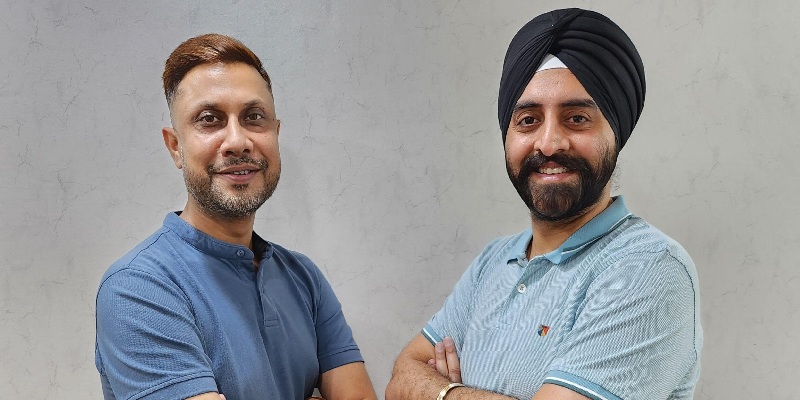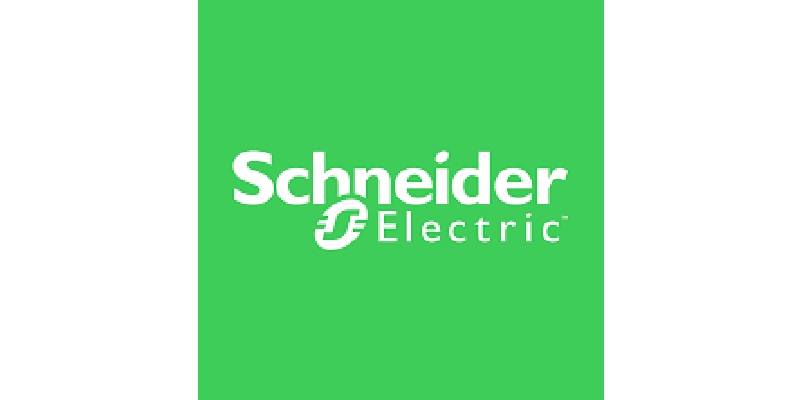Schedule a Call Back
Indo German Trade: Becoming Bigger
 Technical Articles
Technical Articles- Dec 05,11
 A German company opening a subsidiary in India or entering into a close collaboration with an Indian company is no longer the kind of business news that raises eyebrows. It's considered a common occurrence, more so because of the frequency with which such events take place. For instance, four such Indo-German ventures took place within a span of a few months this year. German company Brose, an international supplier for the automobile segment, opened its first manufacturing unit in India in February to start producing electric window lifts. Its planned output of 2 million units per year will cater to not only the domestic market but for delivery to its European customers as well. The plan is also to manufacture motors for seat height adjustment at its plant in Pune.
A German company opening a subsidiary in India or entering into a close collaboration with an Indian company is no longer the kind of business news that raises eyebrows. It's considered a common occurrence, more so because of the frequency with which such events take place. For instance, four such Indo-German ventures took place within a span of a few months this year. German company Brose, an international supplier for the automobile segment, opened its first manufacturing unit in India in February to start producing electric window lifts. Its planned output of 2 million units per year will cater to not only the domestic market but for delivery to its European customers as well. The plan is also to manufacture motors for seat height adjustment at its plant in Pune.
 "Brose will now provide all links of the value creation chain from within India - including development, sourcing, final assembly and logistics. Our staff strength is estimated to increase from 85 to about 150," says Mr Ashwani Aggarwal, President, Brose India. In another development, Gehrlicher Solar AG, engaged in making photovoltaic systems, opened its first Asian subsidiary in Mumbai in a joint venture with Greenforce Enviro P Ltd, an Indian environmental technology company. The business activities of the new company include project development, planning, provision of components and constructing ground-mounted and on-roof solar power plants. "Greenforce combines many years of competence in the use of energy with detailed knowledge of the local market. Together, we will profit from the great business potential solar energy has to offer in India," Mr Klaus Gehrlicher, CEO of Gehrlicher Solar AG says.
"Brose will now provide all links of the value creation chain from within India - including development, sourcing, final assembly and logistics. Our staff strength is estimated to increase from 85 to about 150," says Mr Ashwani Aggarwal, President, Brose India. In another development, Gehrlicher Solar AG, engaged in making photovoltaic systems, opened its first Asian subsidiary in Mumbai in a joint venture with Greenforce Enviro P Ltd, an Indian environmental technology company. The business activities of the new company include project development, planning, provision of components and constructing ground-mounted and on-roof solar power plants. "Greenforce combines many years of competence in the use of energy with detailed knowledge of the local market. Together, we will profit from the great business potential solar energy has to offer in India," Mr Klaus Gehrlicher, CEO of Gehrlicher Solar AG says.
 Meanwhile, Lapp Group, one of the world's leading manufacturers and suppliers of high flexibility cables, cable accessories and industrial connectors, based out of Germany, announced the investment of Rs 150 crore in Bhopal at the end of March this year.
Meanwhile, Lapp Group, one of the world's leading manufacturers and suppliers of high flexibility cables, cable accessories and industrial connectors, based out of Germany, announced the investment of Rs 150 crore in Bhopal at the end of March this year.
The investment will be towards the development of a manufacturing unit in Pilukedi, Rajgrah District. Spread over 30 acres, the facility will be its second in India besides another one in Bangalore where the corporate headquarters of Lapp India P Ltd are located. In the first phase, this facility will employ around 100 people and when the facility will be fully functional, it will have approximately 400 people.
Sharing his insights on India being the focal point of Lapp Group activities, Mr Siegbert E Lapp, Director, Lapp Holding AG, says, "India's thriving economy is showing a promising outlook and I believe it is the future market of the connectivity solutions industry. With the estimated market size of approximately Euro 3 billion, we have a lot to do for the market."
 Analysing the viability of this investment, Mr Frank Imkamp, CEO & President Asia-Pacific, Lapp Group, states, "We have witnessed 30 per cent year-on-year growth in India and it is one of our focused markets. The investment that we are making in the new facility will help us cater to the growing customer demands and our revenue is expected to rise four-fold in the next four years."
Analysing the viability of this investment, Mr Frank Imkamp, CEO & President Asia-Pacific, Lapp Group, states, "We have witnessed 30 per cent year-on-year growth in India and it is one of our focused markets. The investment that we are making in the new facility will help us cater to the growing customer demands and our revenue is expected to rise four-fold in the next four years."
A similar route to India has been taken by BWF Envirotec, which has opened a new factory in Pune. The company has been exporting filter bags for industrial filtration to India for more than 30 years. In 2008, the management of BWF Envirotec decided to build up its own production site for filter bag-making. After the formation of the Indian company, BWF Tec India P Ltd, and the acquisition of a 25,000 sq metres plot, the worldwide economic crisis had brought the construction plans to an unexpected halt. In 2010, the project could be continued and the construction of the office and production building was completed within only seven months.
Explaining the choice of India for its operations, Dr Wolfgang Schmid, Managing Partner, BWF Group, says, "The industrialisation of India has been enormous and thus the demand for filter media for air cleaning and industrial de-dusting is continuously rising."
 Some of such examples cited above prove the fact that the Indo-German business scenario is truly on a roll. And the future seems bright too. "We have set ambitious goals. We want to increase bilateral trade to Euro 20 billion by the year 2012," is what German Chancellor Dr Angela Merkel announced in Berlin following a meeting with Prime Minister Dr Manmohan Singh during his visit to Germany in December 2010. The two heads of states also expressed their aim of increasing bilateral trade by over 50 per cent over the next two years. Going by the current rate of growth of bilateral trade, the target set may well be achieved within the specified deadline.
Some of such examples cited above prove the fact that the Indo-German business scenario is truly on a roll. And the future seems bright too. "We have set ambitious goals. We want to increase bilateral trade to Euro 20 billion by the year 2012," is what German Chancellor Dr Angela Merkel announced in Berlin following a meeting with Prime Minister Dr Manmohan Singh during his visit to Germany in December 2010. The two heads of states also expressed their aim of increasing bilateral trade by over 50 per cent over the next two years. Going by the current rate of growth of bilateral trade, the target set may well be achieved within the specified deadline.
As per the latest figures of the Federal Statistical Office in Wiesbaden, Indo-German trade has grown impressively and posted a growth of nearly 18 per cent in 2010 - the highest in the last three years - after registering a dip of 2.3 per cent during the year 2009. The trade between the two countries reached a volume of Euro 15.4 billion in 2010, adding on at least Euro 2.3 billion over the previous year's figure. This not only ended the earlier speculation of whether bilateral trade would reach the Euro 14 billion mark, but also surpassed it and went on to set a new record of over Euro 15 billion. Meanwhile, Indian exports have grown an impressive 21.3 per cent to reach a figure of Euro 6.2 billion, after registering a decline of 2.8 per cent during 2009. Imports from Germany, which had also fallen nearly by 2 per cent in the last year, grew by 15.7 per cent in 2010, touching Euro 9.2 billion.
Each year, Germany has featured in the top ten list of investing countries in India. Since liberalisation, Germany has been the 8th most important investing country for India. According to information provided on the website of the Indo-German Chamber of Commerce, the top sectors attracting FDI inflows from April 2000 to May 2010 include the services sector (18.2 per cent), chemicals other than fertilisers (14.5 per cent), electrical equipment (8.5 per cent), automobile industry (8 per cent) and trading (7.8 per cent). As many as 1,117 technical collaborations of Germany have been approved out of a total 8,112 of all countries since 1991. The top five sectors inviting technology transfer from Germany since liberalisation are industrial machinery followed by electrical equipment and electronics, chemicals other than fertilisers, miscellaneous mechanical and engineering industry and the transportation industry.
 Germany's investments into India from April 2009 to March 2010 amounted to USD 626 million, accounting for 2.4 per cent of the total investments in India in that year. According to a study, during the last three years investments from Germany have gone up substantially even though the percentage share in the total investments remains more or less the same. This shows that German investments have kept pace with the growing investments from other countries of the world during the last three to four years.
Germany's investments into India from April 2009 to March 2010 amounted to USD 626 million, accounting for 2.4 per cent of the total investments in India in that year. According to a study, during the last three years investments from Germany have gone up substantially even though the percentage share in the total investments remains more or less the same. This shows that German investments have kept pace with the growing investments from other countries of the world during the last three to four years.
In terms of geographical outlay of German investments, the top three investment locations have been Maharashtra, Karnataka and Gujarat. Two new areas that have attracted German investments during the year April 2009 to March 2010 are the Guwahati and Chandigarh regions though even though the share of investments is still very low. Above all, it is the automotive sector that has benefited the most from German investments. The Volkswagen plant in Pune has a yearly production capacity of 1,10,000 cars and continues to be the largest single investment of a German company in India (Euro 580 million). Volkswagen is not the only German automobile investor in India. Daimler set up another production plant in Pune in early 2009 as well as is currently setting up a new plant in Chennai, where starting 2012 trucks will be produced.
Automotive supplier Schaeffler is also planning in investing in India and plans to establish a new 400-employee production facility. In July 2010, crane manufacturer Demag Cranes opened a new facility at Chakan near Pune. The facility was built in eight months at a cost of Euro 8 million and has a capacity of constructing 600 standard cranes and 100 process cranes every year. And apart from the automobile and auto component companies, there are many other big-sized German companies that have made a beeline to India. One such is the speciality chemicals group Lanxess that is going ahead with its intention of setting up a new production site in India. It will have an investment of over Euro 10 million and is due in 2012. Baerlocher will also invest about Euro 1 million to double its production of PVC heat stabilisers at its Indian plant in Dewas to meet the local Indian demand in pipe production for irrigation and water management projects. The reason for such a huge rate of success in Indo-German trade is attributed to the crucial hand-holding role played by the Indo German Chamber of Commerce with its head office in Mumbai and branch offices in Delhi, Kolkata, Chennai, Bangalore and Pune along with a liaison office in D?sseldorf. The chamber provides single window business solutions for companies planning to do business with India or Germany.
"The market entry service is our core service and is supported by business advisory, taxation and legal services and recruitment. Our other important services include market research, business partner search, event management, property search, PR and media, amongst others. We extend complete support, tailored to the needs of small and medium-sized companies. Over the last four years, we have supported more than 130 German companies to get established in India," the website states. It is also the frequency with which various events are organised to help increase the trade. For example, one such was 'Eastern Germany - Your Gateway For European Business Success' held recently in Mumbai where speakers from Germany elaborated about investment opportunities for Indian companies in Germany and especially in the Eastern German region. Eastern Germany is the ideal business location for Indian companies seeking success in European markets. With its strategically favourable position at the heart of Europe, investors can serve the entire region from a single site. Eastern Germany's proven commitment to leading edge R&D is helping create excellent investment opportunities for technology-based companies.
In fact, Indian companies too have been equally proactive in doing business in Germany. With 190 subsidiaries and 23,600 employees on their payrolls as of August 2010, Indian companies have been at the forefront of emerging market investors in Germany. Germany is considered an excellent investment target by many Indian firms in their pursuit of newest technologies and commercially viable cutting-edge innovations. The stock of Indian FDI in Germany was estimated at about Euro 4.125 billion as of mid-August 2010. Apollo Tyres, Motherson Sumi, the Ruia Grou, and Kiri Dyes & Chemicals are some of the investors. And with the increasing participation of Indian industries in trade fairs, especially the ones held at Dusseldorf, the doors are only opening wider.
Related Products
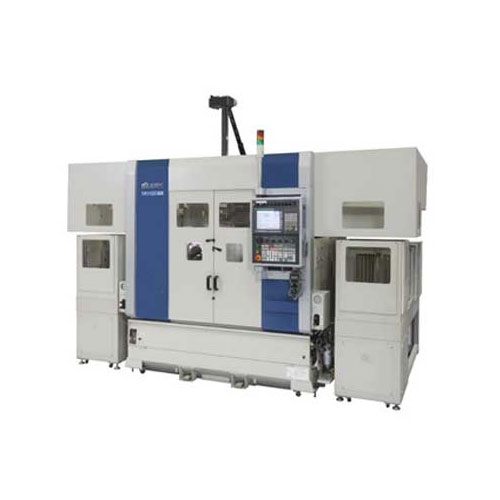
Compact Fmc - Motorum 3048tg With Fs2512
Meiban Engineering Technologies Pvt Ltd offers a wide range of Compact FMC - Motorum 3048TG with FS2512.
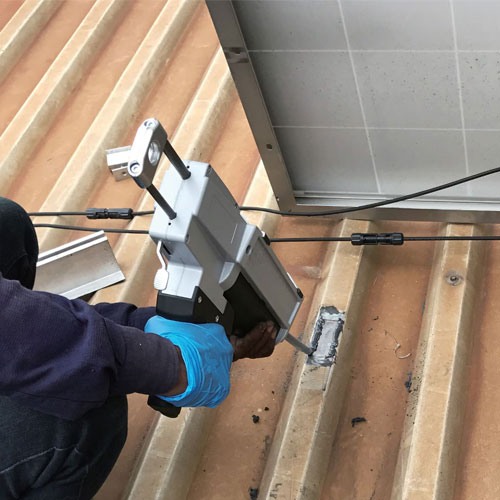
Structural Adhesive for Solar Panel Roof Mounting
Parson Adhesives India Private Ltd offers a wide range of structural adhesive for solar panel roof mounting – Partite 7535.
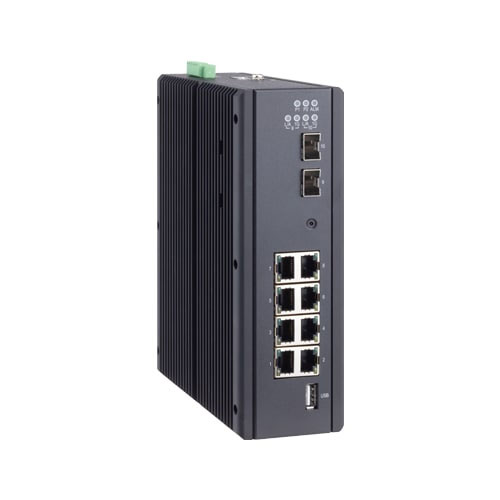
Industrial Tsn Switch
Contec launches a future-ready Industrial TSN Switch- SH-9210TSN.






